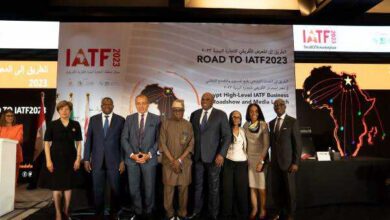
Senate Committee on Industry has commenced the process of amending the Industrial Training Fund (ITF) Act and related matters at the National Assembly in Abuja.
Chairman, Senate Committee on Industry, Mukhail Abiru, explained that the ITF Act needed to be amended to reflect current realities of industrial and allied matters.
The proposed amendments are largely aimed at ending significant inadequacies in the Act, which among other things, had led to non-adherence with the requirements of proof of individual and corporate organisations’ updated contributions to the fund converted by the Act.
“The amendment seeks to address the challenge of inadequate deference or penalties for forgery of certificates of compliance and other official documents, as well as absence of concise interpretation of some keywords and phrases in the Act. It is also expected to strengthen the ITF capacity to administer, supervise and enforce the government’s industrial training reforms.
“At this critical phase in our country’s political and socio-economic journey, providing the desired training, skills acquisition and vocational know-how that will create jobs and alleviate poverty has become not only an imperative, but also non-optional,” Abiru stated.
Read Also: Shippers Council intervenes in dockworkers, APM Terminals labour crisis
Abiru, who acknowledged ITF feat in developing human capacity for the public and private sectors of the economy, especially through Technical and Vocational Education Training (TVET) with the aim of equipping Nigerians with requisite skills for employability and entrepreneurship, argued that digital skills remained essential for survival in the fourth industrial revolution workplace and as such, the fund should accommodate such trainings.
He said: “The world is evolving and so too are the competencies required to walk and thrive in it. The 2020 World Economic Forum (WEF), the future of jobs reports businesses expect 44 per cent of skills employees need.
“To perform effectively in their roles for effective change by 2025, most employers globally plan to swiftly digitise work processes with a fair number intending to use digital tools to connect employees and bridge divides caused by the COVID-19 pandemic. As such, the Fourth Industrial Revolution (41R) is crucial to the major shift in required skills.”
Among other trends, the rise of innovations the like Artificial Intelligence (AI) robotics, the Internet of Things (IOT), cloud computing and in several ways, the COVID-19 pandemic, which have been driving widespread change in the workplace, had only accelerated the transformation.
“In a matter of years, certain jobs may cease to exist, while several other roles will be redefined and other new occupations will surface and become the norm. The question is whether TVET alone will be enough to address the employment crisis of the present and future.
“Are we developing skill sets aligned with the trends of the emerging workforce and the jobs of the future. The answer is no. it is for this reason that the Fund must also focus on acquisition and development of digital skills. Technology has been changing the landscape of the workforce globally at a rapid pace,” he added.
Speaking, Director-General of ITF, Joseph Ari, said the agency sponsored the bill to address the challenges hindering ITF in optimising its operations and deliver on its core mandates and objectives.
Stakeholders at the hearing urged the Senate to increase the one per cent statutory contribution Nigerian companies mandated to remit funds to the ITF for better efficiency and canvassed review of educational curriculum of educational institutions from the primary school level.
Other stakeholders requested that the Nigeria Union of Teachers (NUT) and the Nigerian Content Development and Monitoring Board (NCDBM) should be included in the board, while the Nigeria Universities Commission (NUC) complained of being sidelined in the representation on the board in spite of being an alternate member.
All the stakeholders supported the bill and asked the Senate to expedite action on the passage of the bill.
Others who attended the hearing are top officials the National Pensions Commission (PENCOM), Nigeria Employers Consultative Association (NECA), the Nigeria Labour Congress (NLC), Nigeria Union of Teachers (NUT), NCDMB and the media.




